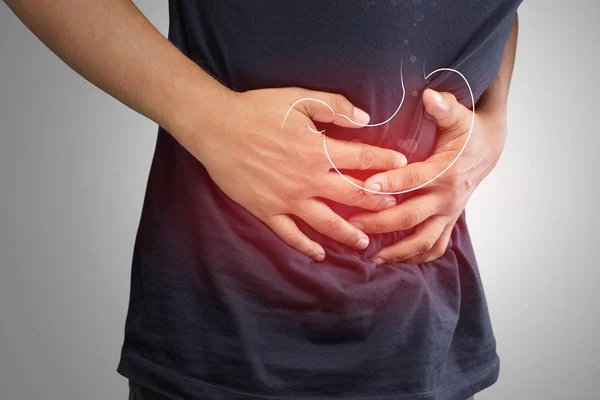Gastritis, a condition marked by inflammation of the stomach lining, is common but frequently misunderstood, especially among women over 50. While many associate it with typical digestive discomfort, its symptoms can be subtle, sometimes masquerading as less serious issues. This makes it easy to overlook or attribute to aging or stress. However, understanding gastritis is crucial because, if left untreated, it can lead to severe complications. This article clarifies what gastritis is, outlines key symptoms, highlights why women over 50 might experience them differently, and explains when to seek medical help. With expert insight, including commentary from Rabia de Latour, MD, a gastroenterologist at NYU Grossman School of Medicine, you’ll be equipped to recognize this often silent condition and take timely action.

What Is Gastritis?
Gastritis refers to the inflammation or irritation of the stomach’s mucosal lining, the protective barrier that helps the stomach digest food while shielding its tissues from harsh acids. This inflammation can be acute, developing suddenly and lasting a short period, or chronic, persisting for months or even years. The causes are diverse, ranging from bacterial infections—most notably Helicobacter pylori—to prolonged use of NSAIDs (nonsteroidal anti-inflammatory drugs), excessive alcohol consumption, stress, or autoimmune disorders. The stomach lining’s inflammation disrupts its normal functions, leading to a variety of symptoms that may not always be straightforward.
The significance of recognizing gastritis extends beyond discomfort. Untreated gastritis can escalate to ulcers, bleeding, or an increased risk of stomach cancer. Therefore, early awareness and intervention are critical, especially for women over 50, who may experience symptoms differently due to hormonal changes and other age-related factors.
Gastritis Symptoms You Need to Know: Insights from Dr. Rabia de Latour
According to Dr. Rabia de Latour, gastroenterologist at NYU Grossman School of Medicine, gastritis symptoms may not be identical for everyone, particularly women in their 50s and beyond. While classic signs include abdominal pain or discomfort, nausea, vomiting, and indigestion, many women report more elusive symptoms:
- Persistent bloating and feeling of fullness, even after small meals
- Intermittent nausea that may be mistaken for menopause-related symptoms
- Subtle pain or burning sensations in the upper abdomen that come and go
- Loss of appetite coupled with mild weight loss without clear cause
- Occasional dark stools, which can be a sign of bleeding in the stomach
- Fatigue due to low iron absorption over time caused by inflamed stomach lining
These symptoms can be easily misunderstood or attributed to other health concerns common after 50, such as gallbladder issues, acid reflux, or hormonal changes. This overlap makes it crucial to recognize patterns, especially when discomfort persists or worsens.
Why Gastritis Symptoms May Differ in Women Over 50
Hormonal fluctuations during peri-menopause and menopause influence digestive health, often complicating symptom profiles in women over 50. Estrogen and progesterone play roles in gastrointestinal motility and pain perception, so their varying levels can alter how gastritis manifests. Additionally, women in this age group are more likely to be on medications such as aspirin or NSAIDs for arthritis or cardiovascular health, which increase gastritis risk.
Moreover, studies show that women tend to report and experience pain differently compared to men due to biological and psychosocial factors. This contributes to subtle or atypical presentations and sometimes delays diagnosis. Women may also face increased anxiety related to health concerns at this stage of life, which can amplify gastrointestinal symptoms and make differentiation more challenging.
Potential Complications of Gastritis You Shouldn’t Ignore
Ignoring or misinterpreting gastritis symptoms can lead to serious health consequences, particularly for women who already face increased vulnerability due to age-related changes. Potential complications include:
- Peptic Ulcers: These painful sores in the stomach lining can cause severe discomfort and bleeding.
- Gastrointestinal Bleeding: Chronic inflammation can erode blood vessels, leading to anemia or more critical hemorrhaging.
- Atrophic Gastritis: This involves thinning of the stomach lining, reducing its ability to produce digestive acids and enzymes.
- Vitamin Deficiencies: Damage to the stomach lining can impair absorption of nutrients, including vitamin B12, leading to nerve problems and fatigue.
- Increased Risk of Stomach Cancer: Chronic gastritis caused by H. pylori infection is a well-recognized risk factor for gastric cancer later in life.
Understanding these risks is vital for timely medical intervention and prevention.
What to Do If You Experience Gastritis Symptoms
If you notice persistent stomach discomfort, changes in appetite, nausea, or unexplained weight fluctuations, especially if you are over 50, seeing a healthcare provider is essential. Early consultation can involve:
- A detailed medical history and symptom review
- Physical examination to evaluate abdominal tenderness
- Tests such as endoscopy, which allows direct visualization of the stomach lining
- Blood tests to check for infections, anemia, or nutritional deficiencies
- Breath or stool tests for H. pylori detection
Be honest about any medications you are taking and lifestyle habits such as alcohol use or NSAID consumption, as these influence diagnosis and treatment plans.
How Gastritis Is Treated: Effective Approaches for Women Over 50
Treatment depends on gastritis cause and severity but typically includes:
- Medications: These can include proton pump inhibitors (PPIs) or H2 blockers to reduce stomach acid and promote healing, antibiotics if H. pylori infection is present, and antacids to ease symptoms.
- Lifestyle Adjustments: Avoiding irritants such as smoking, excessive alcohol, spicy foods, and NSAIDs can significantly reduce inflammation.
- Dietary Changes: Gentle, balanced meals with avoidance of heavily acidic or fried foods support symptom relief.
- Monitoring and Follow-Up: Regular medical reviews ensure the inflammation is resolving and any complications are prevented.
Women over 50 may benefit from a holistic approach that considers hormonal health, bone density (especially if using PPIs long-term), and mental well-being during treatment.
By recognizing the often sneaky symptoms of gastritis, particularly in women over 50, and understanding when to seek help, you can avoid serious complications and maintain digestive health. With medical advances and thoughtful healthcare, managing gastritis effectively is very achievable—empowering you to live comfortably and confidently well beyond middle age.
Also Read | Ovarian Cancer Symptoms: Signs Women Often Overlook Early









